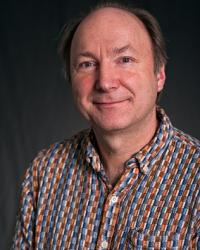Physics Seminar: Visiting researcher Professor Stephen Sharpe
- Date: Fri, 15 Feb 2019, 4:00 pm - 5:00 pm
- Location: Darling West Lecture Theatre
- Cost: FREE
- Contact: Associate Professor Paul Jackson 8313 0269
- Email: p.jackson@adelaide.edu.au

Professor Stephen Sharpe
University of Washington
Professor Sharpe is a leading figure in theoretical physics whose research interests focus on lattice gauge theory, in particular the development of methods to calculate multiparticle properties given lattice results for the finite-volume spectrum.
He is involved in the calculation of weak matrix elements needed to constrain the Standard Model of particle physics.
He is a member of the Particle Data Group and of the Flavour Lattice Averaging Group (link below), and an editor of JHEP.
Abstract
Quantum chromodynamics - the theory of strong interactions - is both a resounding success as a central component of the standard model of particle physics, and a tremendous barrier in our search for new physics beyond. To study the deeper properties of quarks we must peel away the wrapping of gluons and quark-antiquark pairs that surround them.
This is particularly challenging for the interpretation of low-energy precision experiments such as the measurement of the anomalous magnetic moment of the muon or CP-violation in the kaon, D and B systems. A systematic method for determining the effects of QCD - lattice QCD - involves discretizing space-time on a lattice and simulating the resulting quantum mechanical system.
Now entering its fifth decade, this methodology allows precise calculations of the spectrum of light hadrons and of simple hadronic matrix elements relevant for the search for new physics.
In this talk I will describe this progress - arising from advances in theory, algorithms and computers - and then outline ongoing attempts to extend the methods to more complicated quantities involving long-distance strong-interaction effects. These promise to significantly extend the reach of precision lattice QCD.
